Archive for May 2013
Frisco Promises a Stringent Clean-up Standard, Implements Cut-Rate One Instead
 (Frisco)— The local citizens group monitoring the clean-up of the former Exide lead smelter site in Frisco released a letter it’s sent to the Frisco City Council citing what they say is a contradiction between the City’s stated goal of meeting strict “residential” standards for toxic contamination removal, and the use of less-stringent “industrial-site” testing being used to identify that contamination.
(Frisco)— The local citizens group monitoring the clean-up of the former Exide lead smelter site in Frisco released a letter it’s sent to the Frisco City Council citing what they say is a contradiction between the City’s stated goal of meeting strict “residential” standards for toxic contamination removal, and the use of less-stringent “industrial-site” testing being used to identify that contamination.
Instead of testing for toxins eight times per acre, as required under the more thorough residential clean-up protocol, Exide is only sampling twice per acre, a methodology only used for industrial purposes.
“This is a classic bait and switch maneuver,” said Frisco Unleaded Chair Colette McCadden. “While publicly promising one “residential” standard for lead-in-soil clean-up of the “J parcel” that’s more protective of human health, Exide is actually using a much less rigorous testing methodology designed for sites that will see continued industrial activity. This is not an accurate description of future land use in the “J Parcel,” and is at odds with a commitment to a full residential standard clean-up.”
Frisco has committed to buying the outer ring of Exide property, referred to as the “J Parcel,” after a “residential or better” clean-up is achieved. The 2006 Comprehensive Plan for the city, as well as announcements last year from city officials, identified future land uses on the property that included office and commercial development, as well as a greenbelt along Stewart Creek. The site is directly across the North Dallas Tollway from the proposed location of the City’s huge new Grand Park that will host “water features” along Stewart Creek – directly downstream from the smelter site.
Frisco Unleaded states that the less protective industrial protocol is also at odds with the findings of a recent city-sponsored environmental assessment of the J Parcel, which reported new suspected contamination sites. The group linked the change in methodology to Exide’s deteriorating economic condition. Some analysts have predicted the company will file for bankruptcy for a second time in just over a decade. Last Friday, the company’s stock hit a nine year low of under 50 cents a share.
“We fear this downgrade in sampling protocol is an indication of the inadequate clean up citizens have predicted Exide would undertake because of its on-going financial difficulties. We need the City of Frisco to live up to its promise to provide expertise and oversight to prevent Exide from taking shortcuts that will come back to haunt redevelopment efforts.”
Frisco Unleaded is asking the City of Frisco to resolve the contradiction in favor of the residential standard for sampling and clean up by telling Exide it must abide by the agreements it signed. Frisco must approve the J Parcel clean-up before Exide gets nearly $40 million in cash for the land. McCadden says that gives the city a lot of leverage.
“Frisco city leaders should demand that Exide honor the agreement and work toward a real ‘residential or better’ clean-up of this property. We’re asking that they use that influence on behalf of Frisco residents.”
Sloshing Back and Forth Between Coal and Gas
 Around 2003 or so, the Dallas Morning News editorial board convened a roundtable of air pollution stakeholders and more or less facilitated a discussion of what could be done to clean up DFW's dirty air. You see, the area still hadn't complied with the 1997 national smog standard and more and more official air quality monitors were in violation of it. Pretty much, just like now.
Around 2003 or so, the Dallas Morning News editorial board convened a roundtable of air pollution stakeholders and more or less facilitated a discussion of what could be done to clean up DFW's dirty air. You see, the area still hadn't complied with the 1997 national smog standard and more and more official air quality monitors were in violation of it. Pretty much, just like now.
There was a memorable moment when one of the "environmentalists" at the table noted that for decades the Texas utility industry had been primarily reliant on natural gas for its power source, then switched almost entirely to coal during the 70's and 80's, exactly when the nation's first national air quality standards were being written and enforced. "Part of the problem is that there doesn't seem to have been any planning for the consequences of the industry switching over from one source to the other just like that. It's like a frenzied mob group of stockbrokers running back and forth between bidders."
"That's the marketplace," huffed a utility industry representative. And indeed it still is. One frenzied run after another back and forth between the two largest sources of fossil fuel.
You know the scene in Pirates of the Caribbean, At World's End where the crew runs back and forth, from each side of the ship, until it eventually turns upside down? It's like that, only with money doing the running. And it never ends.
That DMN discussion was only a decade ago. What happened next shows how quickly those runs can reverse themselves and the conventional wisdom. Fracking technology delivered new shale plays that flooded the market with new gas. So much new gas, that the price of it dropped to historic lows. That caused a huge switch in the utility industry. Gas was cheaper, so the coal-powered plants started to close and be replaced by gas-powered plants. At the same time the chemical industry, which uses voluminous amounts of gas in production of plastics and other products, announced a new wave of domestic construction because of cheaper gas supplies in the US. Finally, in order to prop-up the low gas prices that that are killing profits, the gas industry itself promoted the fuel for transportation use and export.
And students, what happens when all these elaborate plans to take advantage of cheap gas begin to blossom? Demand increases. Cheap gas turns into not-so-cheap gas. And then coal begins to look pretty good again. All of a sudden it's the negative image of 2003, and all that money is starting to run toward coal as gas prices rise.
And what that means is that the higher methane levels causing climate change are replaced by higher CO2 levels causing the same climate change. This is why we need to get out of the rut we're in where our choices are determined by short-term financial gain and not long-term survival.
Government puts its finger on the scales in the marketplace all the time to help this or that industry. Without government guarantees, whole sectors of the economy would not be able to function in a completely unfettered market. This is what the CO2 cap and trade system was designed to do – make the marketplace respond to pressures put there by government in order to achieve a goal of reducing the stuff that will make the place we live less habitable. But it was all a communist plot,or something like that. So in the meantime, we continue to slosh back and forth.
From the Houston Chronicle comes this summary of the latest trends:
After years of declining greenhouse gas emissions, Texas and other states reported sharply higher levels of carbon dioxide in 2012 as electric generating plants began to use more coal when natural gas prices began to rise, according to a study released Thursday.
Citing research done by the Environmental Integrity Project, Texas once again led the nation in CO2 from power plants in 2012, emitting 251 million tons. Florida was a distant second at 120 million tons. Just five states accounted for one-third of the nation's CO2 power plant emissions. Besides Texas and Florida, they include Pennsylvania, Indiana, and Ohio. Needless to say. the old TXU plants in East and Central Texas run by corporate off-spring Luminant are the largest contributors.
The price of gas will continue to go up and coal will be competitive. Or maybe it will go down and coal won't be attractive. Maybe we'll be downwind of lots more coal plant pollution. Or maybe we'll all have a rig or compressor station in our backyard. Who can say? That's the marketplace! The question is, do you want to bet our survival on it?
Tools for Citizens
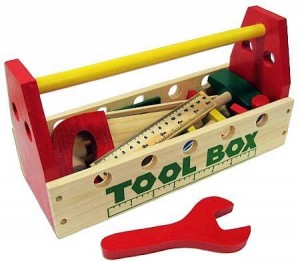 The Texas Tribune is a completely online journalistic experiment. Of late, it's offered some cool interactive tools for the curious-minded:
The Texas Tribune is a completely online journalistic experiment. Of late, it's offered some cool interactive tools for the curious-minded:
1) Interactive Map of Ammonium Nitrate Sites in Texas
Wondering if your friendly neighborhood feed store is another "West" explosion waiting to happen? You can track down over 110 sites listed by the State Health Services Department as facilities storing the chemical Ammonium Nitrate in powder or liquid form. It also tells you where the nearest school and hospitals are in relation to the site.
2) Tracking Energy Industry Contributions Among Texas Politicians
Use this handy tool to trace which elected officials are the recipients of political campaign contributions from T. Boone Pickens, Oncor, Energy Future Holdings, and all the other major industry players since January of 2011. Not surprisingly, Greg Abbott leads all comers as he gears up to run for Governor.
Frisco Kids Play Within Feet of a Hazardous Waste Dump
This is a 23 second video shot on the corner of Eubanks and 5th Street in Frisco earlier this month. This corner is the northeast border for the property owned by the Exide lead smelter.
When it begins, the camera is looking south toward the now shuttered smelter. In fact, at the 3-second mark, you actualy see the smelter's smokestacks betwen two trees for a brief moment. In front of those trees is the fenceline separating the smelter property from the public. Immediately behind those trees is a berm that marks where the smelter's active landfill is.
This "non-hazardous" landfill holds approximately 9 million pounds of lead-contaminated waste. Lead itself is dangerous, but Exide got caught illegally burying hazarous waste in this non-hazardous landfill. The company's remedy is to dig the hazardous waste up, "re-treat it" and then re-bury it in exactly the same landfill. All this is to be done at the edge of the smelter's property at this corner of Eubanks and 5th.
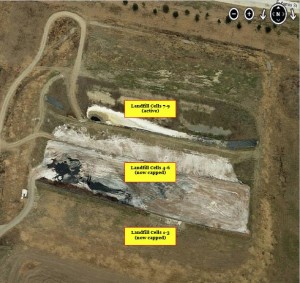
This is an aerial pic of the Exide active landfill operation at the corner of Eubanks and 5th Street. The line of the trees at the top right are the same ones you see in the video.
Besides this waste from production, Exide is now using the landfill to dispose of as much smelter demolition waste as possible. That makes it the most active spot on the smelter property at this point, with trucks full of waste coming and going besides the on-going "digging and "re-treatment" there.
And when Exide is finished stuffing all the lead-contaminated waste it can into this landfill, it hopes to leave it buried in Frisco forever.
Directly across the street from this illegal hazardous waste landfill is the "Play Ball" rec center for kids – a batting cage business. On nice days, you can usually find the south-facing/smelter-facing metal garage door wide open to allow for air circulation for the kids taking practice inside.You can also find their sibings and peers playing on the front driveway, only about 50-100 feet away from the lip of that landfill berm.
When the wind is out of the south, as it often is from March to October, the Play Ball batting cages and the kids there are are directly downwind of the smelter and the landfill operation. A lead-in-air monitor operated by the the Texas Commission on Environmental Quality is located on Eubanks. It's that skinny white pole in the middle of the frame at the 5-second mark. This monitor has repeatedly found concentrations of lead in the air higher than the EPA's new national lead in air standard – since the smelter closed.
So not only are these kids subject to being downwind of all of the smelter's demolition activity. They're also just across the street from the most heavily used part of the smelter now, with a much larger risk of getting contaminated.
Exide, the City of Frisco and the Texas Commission on Environmental Quality all would have you believe that everything is hunky-dory at the lead-smelter site. Look, the smokestacks are coming down! But in reality, this site is still posing risks for Frisco children who are still playing right across the street.
Behind Closed Doors Again
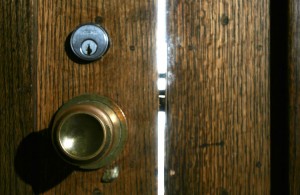 On Wednesday the Dallas City Council met in executive session to talk gas drilling. Will there be a move to vote on the Trinity East permits before the new, slightly less drill-enamoured Council is seated on June 24th, or was this just another chance for the City Attorney to lecture members about how dire the consequences of denying these permits will be before they're joined by the rookies? Stay Tuned.
On Wednesday the Dallas City Council met in executive session to talk gas drilling. Will there be a move to vote on the Trinity East permits before the new, slightly less drill-enamoured Council is seated on June 24th, or was this just another chance for the City Attorney to lecture members about how dire the consequences of denying these permits will be before they're joined by the rookies? Stay Tuned.
We Need More Claudia Meyers
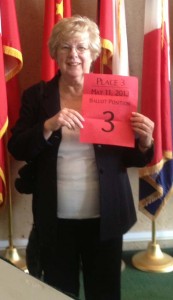 There are failures and then there are glorious failures. Just ask William Travis.
There are failures and then there are glorious failures. Just ask William Travis.
Claudia Meyer did not win her District 3 council race against Vonciel Hill on May 11th. Odds were heavily against her doing so. But Claudia knew this going in. And still she fought a good fight.
"I wanted you to see what real courage is, instead of getting the idea that courage is a man with a gun in his hand. It's when you know you're licked before you begin but you begin anyway and you see it through no matter what. You rarely win, but sometimes you do." ~Atticus to Scout in Harper Lee's "To Kill a Mockingbird"
Imagine you're a 71-year old retiree who's spent the last four years being exhausted by a fight with Dallas City Hall over gas permits in your neighborhood. And then you're drafted at the last possible minute to run against a Dallas Establishment darling, keeper of the Trinity Toll Road dream, with access to money and resources that you'll never be able to match. Most sensible people would have said thanks but no thanks. Thank goodness Claudia Meyer did not.
Without a serious opponent, Vonciel Hill would have glided to a third term, her homophobia and complete subservience to the Powers That Be mostly unchallenged. Claudia Meyer made sure that didn't happen. Hill had to go out and work for her victory. She had to at least pretend to be concerned about neighborhoods and issues she otherwise probably would not have bothered with. Opposing such a Citizens Council sycophant is a badge of honor.
Claudia also made Hill's literal worship of embattled City Manager Mary Suhm an issue, as well as Hill's support of Suhm's secret gas drilling deals. One can't help but feel this language, and similar campaign rhetoric in other council races, played a part in Suhm's decision to step down later this year. We know that the drilling scandal that she was at the center of, and which Claudia and Ed Meyer helped uncover, certainly did.
So while Claudia lost the battle on May 11th, she and the forces organized on her behalf have been winning the wars. Suhm is now history and for the first time in eight years, there won't be a "Strong Manager" form of Dallas City government. The fight Claudia help found and direct against the Trinity East gas permits has not only stopped them dead in the water, but shifted the entire council to a more anti-drilling stance. She wont be sworn in on June 24th, but Claudia Meyer's efforts will be well-represented on the new city council.
Not all of us have the gumption that Claudia did in taking her leap of faith. But we can do what we can do – and, let's face it, that's usually more than we end up doing.
We need more people willing to put their shoulder to the wheel of creaky social change. Its hard work. You don't always win. But there's a great deal of value in trying.
If you want to make sure that the Dallas City Council is as progressive as it can be; that it will reject irresponsible gas drilling permits and build a real quality of life agenda, then the consensus is that you should go out and volunteer for the Philip Kingston and Jesse Diaz Campaigns. Early voting begins June 3rd for a June 15th run-off election day. These races will be decided by even fewer votes than the races in May. Every single one counts. Stiffen that backbone, slip on those walking shoes, and finish the work Claudia started.
Hard to Explain…When You Get Funded Not To
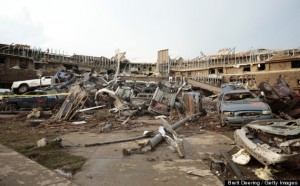 Oklahoma Sen. James Inhofe (R), who maintains that global warming is a hoax created by former Vice President Al Gore and the United Nations, said on Tuesday that it was "hard to explain" why Monday's tornado was "so much worse."
Oklahoma Sen. James Inhofe (R), who maintains that global warming is a hoax created by former Vice President Al Gore and the United Nations, said on Tuesday that it was "hard to explain" why Monday's tornado was "so much worse."
During an interview with John Berman on CNN, Inhofe remarked that the storm had transported a photo 80 miles from Shawnee to his neighborhood in Tulsa.
"So many things happen that are so hard to explain," he told the CNN host. "This thing was huge. This is one of the largest ones that we've had."
How Mary Suhm Fracked Herself
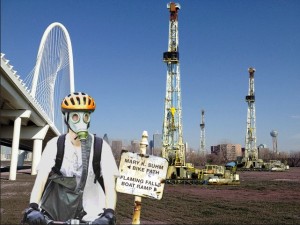 When you take on polluters, you take on the government that lets them pollute. The two are intertwined.
When you take on polluters, you take on the government that lets them pollute. The two are intertwined.
On Thursday, Dallas City Manager Mary Suhm announced that she was resigning. Just about every news account of her announcement connected it to a series of missteps over the last several years, most prominently, the February disclosure by the Dallas Observer that she had signed a previously unknown agreement with Trinity East promising to work with the company to overturn current policy and help secure permits to drill for gas in city parks.
Although superficially dealt with by an official airing in front of the Council where most members forfeited their roles as keepers of the public trust, the issue kept floating to the top of any discussion about not only the Trinity East permits, but the general issue of gas drilling in Dallas. Every City Council race questionnaire this election cycle had queries about not only the specific permits, but also about the performance of the City Manager in wrestling with the scandal. This wasn't going away.
Suhm had what she believed was a plausible public explanation for how she made an honest mistake in misleading the Council over the agreement….for five years. What was always lacking was an explanation for why she continued to lie to Dallas residents about it for that long. Not one word of any defense of her focused on why it was wrong for a city official to align herself against citizens fighting irresponsible drilling and not tell them about that alignment as the entire city went through a multi-year reassessment of urban drilling, first with a moratorium on new permits, then a gas drilling task force, then the permitting process for the Trinity East permits themselves.
instead she directed city staff to distort the system to enable illegal permits to appear legal. Zoning classifications appeared or disappeared depending on the forum. One-off exemptions were carved out as necessary. Park drilling? Perfectly fine under these "special" set of circumstances. Flood plain drilling? No problem either. Anything to make these square pegs fit in otherwise round holes.
Common decency and allegiance to democratic principles demands that she should have publicly disclosed the agreement with Trinity East the minute a review of current city drilling policy began. She did not. When it was involuntarily disclosed for her by the Observer, she looked exactly like the co-conspirator she was.
There's no question that the fight citizens' groups have waged against the Trinity East permits led directly to the disclosure of the agreement. Based solely on circumstantial evidence, it was clear that there was some kind of unpublicized deal that had been "cut" between City Hall and Trinity East. Looking for it became the political equivalent of looking for Dark Matter in the Universe. Everything happening pointed to its existence, but you couldn't actually see the thing itself.
But here's the punch line. Citizens only started to look for that deal after Suhm and the Mayor decided to fast-track the Trinity East permits in late November. It was that decision, made without any warning to the residents that had been involved in the drilling fight, and abruptly ending a year-plus long moratorium on new gas permits, that re-energized opposition and led to Suhm's resignation only six months later. Suhm fracked herself the minute she began to plot with the Mayor to undercut due process and try to pull a fast one on citizens. If they hadn't been in such a clumsy rush to get the Trinity East permits approved, none of this would have happened like it did.
Last week's municipal elections solidified a slightly more independent Dallas City Council, with new and re-elected members who openly oppose the Mayor's pro-drilling stance. Trinity East's permits, which needed a Council super-majority to be approved, look to be doomed. Rawlings' own political future is clouded – how many North Texas mayors have unpopular proposed refineries named after them? The landscape of city politics has changed over the last six months. Citizens fighting City Hall did that. But it was City Hall itself who set it in motion.
Dallas City Council Elections and Drilling: Mayor’s Plan Fails, What’s Next?
 The dust hasn't completely settled, but it's clear that Saturday's municipal election generally strengthened anti-drilling sentiment on the Dallas City Council.
The dust hasn't completely settled, but it's clear that Saturday's municipal election generally strengthened anti-drilling sentiment on the Dallas City Council.
This happened because of two things: 1) Residents elected anti-drilling candidates outright (Griggs and Medrano, with a run-off for Kingston), and 2) a couple of hard core supporters of the Mayor's and Mary Sumh's drilling plans were replaced by candidates who are more conditional in their support for how and where to drill than their predecessors (Kleinman replaces Koop, Griggs replaces Jasso).
Both of those factors can be traced directly back to all the constructive hell-raising citizens have been doing over the past two years or more. Every single candidate questionnaire had a query about gas drilling in Dallas. It came up at debates and forum and interviews. You made it an issue that even business-backed candidates had to address in a citizen-friendly way. You changed to tone, the content of the debate. You did that.
Our citizens' slate won two out of five races outright, with a chance to make it three out of five if Kingston wins the June 15th run-off. Unfortunately, Claudia Meyer lost her race to Vonciel Hill despite a lot of hard work and grassroots effort. And drilling opponent Leland Burk lost to Jennifer Staubach-Gates.
The June 15th run-off is now very important indeed, because it could give us up to 6 votes on the Dallas City Council against irresponsible urban drilling, with a possible 2-3 more swing votes coming over to our side depending on the permit and the site. You need 8 votes out of 15 to win. We're very close.
Besides the Kingston run-off with industry-backed Bobby Abtahi, there's also the District 5 run-off pitting Jesse Diaz against Rick Callahan – both very conditional drilling supporters who appear to be against park drilling.
So here's the Dallas Drilling scorecard as of today:
Opponents of Drilling
Greyson
Griggs
Davis
Alonzo
Medrano
June 15th run-off:
Kingston
Unconditional Supporters of Drilling:
Rawlings
Hill
Atkins
Caraway
Allen
Kadane
June 15th run-off:
Abtahi
Conditional Supporters – based on public statements
Staubach-Gates
Kleinman
June 15th run-off: Diaz or Callahan
Short-term, these election results look like they doom the zombie Trinity East permits. We only need four Council votes or more to uphold the City Plan Commission denial of those permits. We have at least five now, with the chance for 6 or more after June 15th. So the Mayor's plan to hold off on voting on these permits until after the election in hopes of finding more supporters has failed.
This is no small accomplishment. Last November, when the Mayor held a press conference and announced that he was breaking the informal moratorium that was holding back all permit requests until a new ordinance was written and pushing the Trinity East permits through for approval, it indeed looked like a "done deal." And as recently as April, some Dallas City Council members were telling their peers in Irving not to fret, because, despite the Plan Commission vote, the Trinity East permits were still a "done deal."
Well, folks that deal is done now. Well done. As in, put a fork in it. Congratulations. The Mayor tried to pull a fast one and he didn't succeed because of the fierce resistance he got from his own residents. We should know soon when the Trinity East vote will be, and when it's scheduled, we'll need you at City Hall once again to show the new city council that fierce resistance in person. Maybe that will make an impact on their future voting.
Longer term, the new Council will have more members who are opposed to all drilling in Dallas, not just in parks and flood plains, but they don't yet constitute a majority. They're at direct odds with the six Council incumbents who are avid supporters of drilling everywhere and anywhere. Somewhere in the middle – at least until the first vote or so – will be the three freshman members who are possible swing votes.
Their views will be increasingly important if one or both things begin to happen – there is movement to actually write a new gas drilling ordinance after the Trinity East permit denials are upheld, and/or Luminant follows through on its plans to drill and build a compressor station at North Lake and submits permit applications that will be at the center of yet another round of public controversy.
For now, let's concentrate on the June 15th run-off and getting a 6th anti-drilling vote on the Dallas City Council. Its not 8 yet, but it's pretty darn close and construction is still in progress.
Tomorrow is Election Day. People Like Us Need to Make It Earth Day Too.
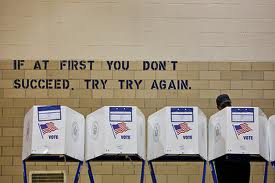 Some cynics don't think voting matters. They're wrong. It matters a lot. Especially local elections.
Some cynics don't think voting matters. They're wrong. It matters a lot. Especially local elections.
Because the pool of votes is smaller, each vote is magnified. Your vote literally counts for more. Because the elected official is a neighbor and governs from City Hall or the Courthouse instead of Austin or Washington, they're more directly accountable for their decisions. In many ways, local elections are the closest we come these days to what our founders believed all elections should be about.
That's why folks like us need to be more involved with them. Local elections are more susceptible to the determined energy of insurgents. They take less money to win and shoe leather passion can beat big bank accounts. They're winnable with the resource we have, or can realistically raise. They don't necessarily produce a final victory outright, but they can help you get there sooner than you would otherwise.
As it happens, that's exactly the same pragmatic philosophy behind Downwinders at Risk's emphasis on local organizing in North Texas. The more local it is, the more muscle we have.
But there's a huge disconnect between the feel-good, big-tent well-attended local festivals that surround Earth Day events now and the way those same festival crowds vote on Election Day a few weeks later. We need to change that.
That's why Downwinders at Risk and its 501c3 Education Fund are both spending money and effort on educating voters about the Dallas City Council election this cycle. Although gas drilling isn't officially on the ballot, it's what's at stake. Will Dallas follow the now-familiar path of being ridiculously subservient to the oil and gas industry, or can citizens force it to stake out a different course that's more balanced? Right now Dallas is front and center in the North Texas gas counter revolution. That's why we're there.
So far, citizens have won every round, despite the combined forces of the Dallas Citizens Council, City Hall, and the industry working against them. But those victories could be be temporary depending on tomorrow's electoral outcome. The Mayor has cynically put off the final vote on the Trinity East gas permits until he sees if he has an even more pro-drilling council to override the City Plan Commission denial.
If you live in a Dallas city council district with a competitive race, we strongly urge you to vote. We've publicized a breather's guide to the best candidates on the drilling issue that includes, Claudia Meyer in District 3, Philip Kingston in District 14, Scott Griggs in District 1, Leland Burk in District 13 and Adam Medrano in District 2. If you haven't volunteered your time or given money to any of these candidates it's too late now, but everything will be forgiven if you turnout and vote your passion tomorrow.
D Magazine, published by a principled disciple of William F. Buckley and catering to a demographic several tax brackets above ours, is running an on-line survey of Dallas city politics on the eve of Election Day. One of the questions they're asking is whether drilling should be allowed in urban areas. Last time we looked there was a resounding 75% "No!" in response. And yet, most members of the Dallas City Council actually are OK with not only drilling in Dallas, but drilling in parks, flood plains and putting refineries next to schools and huge recreation centers. There may be no other issue in recent memory where Dallas City Hall was more out of sync with its residents. That has got to change if we're going to win the war and not just the battles.
And the grassroots movement has to embrace and become skilled with the tool of local electoral politics. That's why, in the coming months, Downwinders at Risk will be exploring the creation of a Political Action Committee, or (PAC), focused exclusively on strategic local, North Texas races. It's time we got more involved in helping to decide who the deciders will be.
Meanwhile, do your part tomorrow to make Election Day Earth Day.
